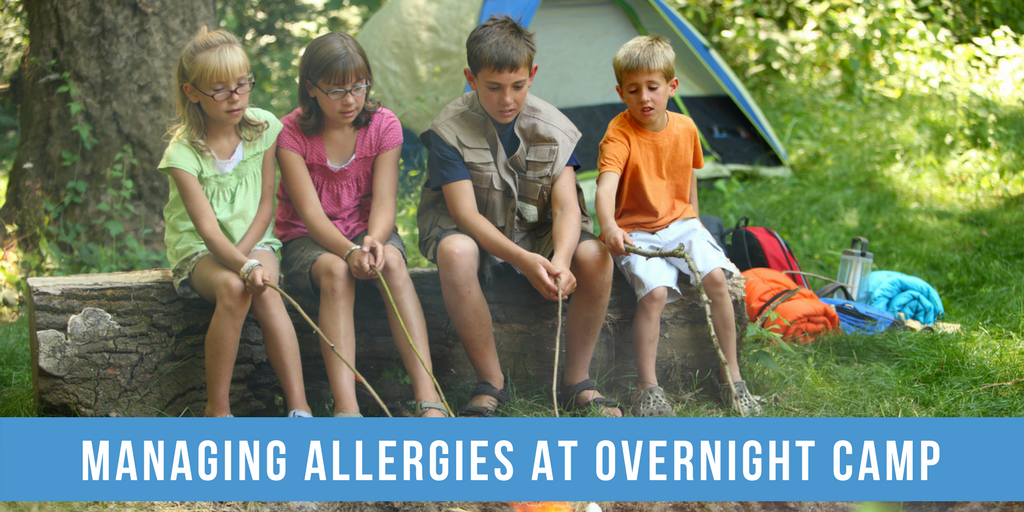Children and adults can suffer from a wide range of allergies, whether it’s due to a food sensitivity, insect stings, medication, or seasonal and environmental changes.
Allergy symptoms depend on the substance involved, and can affect the airway, sinuses and nasal passages, skin, and digestive system. Allergic reactions can range from mild to severe, with the most serious being a life-threatening reaction known as anaphylaxis [Source: Mayo Clinic].
For those with any kinds of allergy, managing them on a daily basis is key, ensuring you don’t come into contact with whatever might cause a reaction, and also making sure that you have the right medications or supplies to help you should you experience symptoms.
So what happens when you send your little one to an overnight camp, where they are away from home in an unfamiliar environment?
Family Responsibilities
 Here are some ways that you, as a parent, can help ensure that allergies don’t get in the way of your child’s camp experience:
Here are some ways that you, as a parent, can help ensure that allergies don’t get in the way of your child’s camp experience:
- Provide as much information to camp staff as possible when your child enrols (Hint: ePACT’s allergy module is an easy way to do this)
- Give camp staff early notice of the allergy so plans can be made – this is especially important for food or dietary allergies that require specific attention
- Ensure your child has a valid Epipen with them as they head off to camp and that the camp is given sufficient supplies to use in an emergency (especially as many camps are remote)
- Discuss the camper’s responsibilities with them:
- Ensure that they know not to eat anything with unknown ingredients or trade food with other campers
- Make sure they understand the symptoms of their allergic reaction(s) and the importance of recognizing any degree of reaction so that they can tell camp staff immediately
- Instruct them on how to properly use their Epipen and ensure they can read food labels (if appropriate for their age)
Camp Staff Responsibilities
 Camp staff can help your child prior to, and in the event of, an allergic reaction:
Camp staff can help your child prior to, and in the event of, an allergic reaction:
- Notify all relevant staff of critical allergies – a report of all campers with known allergies and details of their reactions is a great place to start, especially if a child is participating in multiple camps or activities
- Know how to contact the medical team or first responders as quickly as possible (e.g. if the camp is in a remote location, should they contact the onsite nurse first, or immediately call 9-1-1)
- For remote camps, there should be a plan in place for getting paramedics to the camp or transporting the camper to a hospital
- For children with particularly severe food allergies, there might need to be a specific plan in place when it comes to meal times. Depending on how food is served:
- Allow the child with allergies to eat or access food first to avoid cross-contamination
- Provide a separate space for the child to eat so that they can do so without the risk of encountering food allergens from other campers
- In case a nurse or camp staff member must administer medication, they should be properly certified to do so and have access to the right medications
- Plan for reactions – ensure that medication is brought on all outings and that all camp staff now how to use an Epipen if the child can’t do so themselves
[Resource: Food Allergy Research & Education]
When it comes to managing allergies at overnight camps, it takes a little more preparation and planning to help make sure that your children are safe and healthy. Making sure that everyone is aware of allergies and how to respond to any reaction can help keep spring and summer camps fun for everyone!
Terms and Conditions
All content provided on this blog is for informational purposes only. The owner of this blog makes no representations as to the accuracy or completeness of any information on this site or found by following any link on this site. The owner will not be liable for any errors or omissions in this information nor for the availability of this information. The owner will not be liable for any losses, injuries, or damages from the display or use of this information. This policy is subject to change at anytime.

